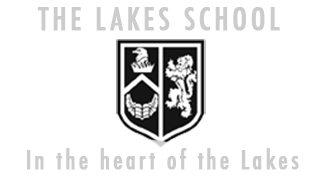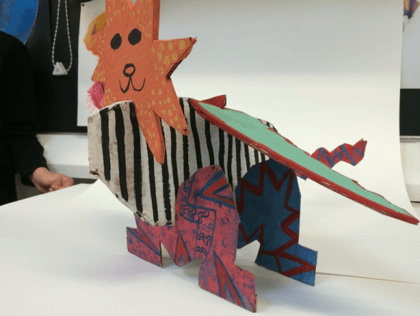ART & DESIGN
SCROLL TO THE VERY BOTTOM OF THE PAGE FOR INDIVIDUAL PROJECT INFORMATION
Our aim is to nurture creative ways of thinking by inspiring, challenging and empowering students in a positive visually exciting environment. We hope to contribute to young adults who approach life with a sense of restless personal enquiry; a lifelong CREATIVE JOURNEY!
We enjoy the relationships we have with our students. We provide a stable, organised environment with clear boundaries. Opportunities for support are available during lessons and in various formal and informal extra curricular sessions.
We believe it is essential that all students engage in a wide range of experiences which stimulate creative and imaginative responses. Drawing from observation is used as a primary tool of investigation leading to more sustained inquiry using a wide variety of media.
We introduce students to a wide range of artists, craftspeople and designers from across history and from diverse cultures; we encourage our students to make links between their own and others’ practice.
Embedding the basic foundational knowledge to succeed in recording, use of media, and studying the work of diverse practitioners will lead to more sustained independent inquiry led by the student and supported by the teacher.
We deliver the knowledge and practical skills above in a series of themed projects which follow a common sequence:
We aim to showcase student work in regular changing displays in classrooms, the whole school and in the wider school/community.

Art Curriculum Year 12 - Year 13
| Autumn 1 | Autumn 2 | Spring 1 | Spring 2 | Summer 1 | Summer 2 | |
|---|---|---|---|---|---|---|
| Year 12 | Induction (Drawing, Combining Drawings, Gallery Trip) – Summer STILL LIFE Photography – camera use, editing, archiving/presentation, analogue – photograms and pinhole cameras (RHa) Painting Artist Research (Early European Modernism) (EBe) (URBAN) LANDSCAPE Alternative approaches – monochrome paint, mud, land art Research (RHa) Painting (watercolour), drawing and photography Holehird Trip 3D/Clay (EBe) | Final pieces (A4 or A5) CITY VISIT/THEMATIC ENQUIRY Themes to cover Human Form, Abstract/Pattern, Built Environment Final Outcomes could be: PHOTOGRAPHS, FINE ART/PAINTING, APPLIED or 3D EXAMINATION – 10hrs | APPLIED BRIEFS Graffiti (RHa) Graphic Design (EBe) | YEAR 12 INTERNALLY SET ASSIGNMENT Exam themes adapted from Y13/AS Question Papers | PRINTMAKING/NEW TECHNIQUES Lino & Collograph (RHa) Monopring & Screenprint (EBe) | Catch up, redo, improve, mount/present (including exhibition in school), REVIEW FOLDER Y13 Personal Investigation – folder review. Support writing own brief. Deep research/What is Art? |
| Year 13 | PERSONAL INVESTIGATION (continued) CHAPTER 1 – Artist Research, photos, drawings, planning and final pieces (for display in school) | CITY VISIT CHAPTER 2 – New Artist, photos, research and new final pieces | CHAPTER 3 – Bonus Final Pieces, Presentation of Written Component | EXTERNALLY SET ASSIGNMENT Set early February, 15 hour examination late April FINAL EXHIBITION in school | Study leave begins at end of term | |
What skills will you learn through the study of art?
Decision making
An appreciation of diversity
Resourcefulness
Interpersonal and social skills
Self motivation and self management
The ability to work independently
Creative problem solving
Teamwork
Visual presentation
Imagination and creativity
Oral and written communication
Creative use of IT software
Critical awareness of self and others (being reflective)
These are the deeper concepts that underpin our work. These will emerge over time and are hard won by our diligent and attentive students.
We hope to create confident, creative individuals with a range of transferrable knowledge that will help them thrive in society and the world of work of the future.
The following headlines from NESTA’s The Future of Skills report (2019) broadly summarise how we are trying to equip our students with cultural capital:
Interpersonal Skills: Skills used to interact and communicate with other people.
- Ability to collaborate
- Understanding of others
- Teaching others
Learning Skills: Skills used to learn new knowledge and behaviours.
- Setting goals
- Getting feedback
- Asking relevant questions
Higher Order Thinking Skills: Advanced thinking skills which go beyond just remembering facts.
- Originality
- Active learning
- Range of ideas
- Complex problem solving
- Judgement and decision making
What Art Is For (Careers & Beyond...):
ART TEACHES:
Decision making
An appreciation of diversity
Resourcefulness
Interpersonal and social skills
Self motivation and self management
The ability to work independently
Creative problem solving
Teamworking
Visual presentation
Imagination and creativity
Oral and written communication
Creative use of IT software
Critical awareness of self and others (being reflective)
These are the deeper concepts that underpin our work. These will emerge over time and are hard won by our diligent and attentive students.
We hope to create confident, creative individuals with a range of transferrable knowledge that will help them thrive in society and the world of work of the future.
The following headlines from NESTA’s The Future of Skills report (2019) broadly summarise how we are trying to equip our students with cultural capital:
Interpersonal Skills: Skills used to interact and communicate with other people.
- Ability to collaborate
- Understanding of others
- Teaching others
Learning Skills: Skills used to learn new knowledge and behaviours.
- Setting goals
- Getting feedback
- Asking relevant questions
Higher Order Thinking Skills: Advanced thinking skills which go beyond just remembering facts.
- Originality
- Active learning
- Range of ideas
- Complex problem solving
- Judgement and decision making
https://www.pinterest.co.uk/thelakesartdept/
ART CAREERS (link to Pinterest boards)
https://www.pinterest.co.uk/pin/AZXx6CPWifiwcwDug_MKwUR-eIuGlzWl4jN9vfGoLNvV6GQf6HWARmE/
Pinterest is a fantastic source of inspiration and The Lakes School Art Department has its own account.
Come and take a peek…
Year 7 Animal Exploration
This unit aims to give pupils a thorough grounding in basic Art skills, and an introduction to Art as taught at secondary level.
Pupils will work on the theme of animals, particularly focusing on pattern and similarities to non-Western Art.
Pupils will explore a wide range of techniques and media and will research and document their understanding of how Artists, Designers and Craftspeople have tackled similar subject matter.
All lesson tasks and homework assignments are structured to allow a certain amount of open-endedness.
Students will make considered decisions later as their confidence builds through experience.
Students will be encouraged to make informed judgements based on sound working knowledge.
Year 7 Architecture
Year 8 Skulls/Organic Forms
Year 8 Masks
Year 9 Landscape
Working on the theme of Landscape, pupils will explore the use of media, recapping on basic skills of composition and drawing from observation.
They will develop their confidence of colour mixing, collage, design, abstraction and ICT.
Pupils will learn about a variety of historical and contemporary artists who use both the natural and urban landscape as a source of inspiration for their work.
Pupils will explore art that both records and responds to their environment in a variety of styles and media.
Year 9 Distorted Portraits
Working on the theme of self portrait, pupils will explore their use of media, recapping on the basic skills of composition, drawing from observation, colour mixing and handling paint. They will be able to make a response to the portrait work of other artists.
Pupils will find various ways to distort previous work, and will combine this to develop a large scale final piece.
Year 9 Letter Forms
Introduction to Key Stage Four
2018 Examinations and onwards
GCSE Art and Design – Exam Board AQA/Specification Code 8202
The GCSE examination consists of two parts:
Unit 1 – Portfolio of work (Controlled Assessment (formerly coursework)) – 60%
A portfolio of selected work from the 2 years comprising at least one project and selected one 10off pieces (appx. 45 hours worth of work)
Unit 2 – Externally Set Task – 40%
Students choose one from a range of themes set by AQA. Unlimited preparatory time is allowed before the 10 hour test.
Year 10 The Sea
PowerPoint on students-shared-Art- “YEAR10THESEAARTISTS”
This project aims to consolidate skills and knowledge from the previous three years. A carefully structured approach is used to show how the GCSE Assessment Objectives are met through practical and research tasks. The project culminates in a final piece which is displayed in the school.
Year 10 Painting
Year 10 The Sea continued
Year 11 Thematic Enquiry
This unit is intended to allow students to develop skills and interests in a more self directed fashion – just like they will have to in response to the Externally Set Assignment at the end of the course. The themes are diverse and altered yearly to suit the range of skills and interests of current students.
They have been carefully selected in light of previously successful exam units produced by past students.
https://www.pinterest.co.uk/thelakesartdept/movement-figures-in-motion/
https://www.pinterest.co.uk/thelakesartdept/collections-pop-art-still-life/
Year 11 Unit 2 Externally set assignment
This is an independent unit of work set by the examination board (AQA). Although set by the board the initial themes are expanded (particularly in the AO1/Contextual side by means of a PowerPoint presentation).
A calendar is issued that helps to structure the students’ use of time. A final piece is completed during a 10 hr (2X5 hrs) controlled test at the end of a 12 week preparatory period.
Introduction to Key Stage Five
2017 Examinations and onwards
A Level Art & Design – Fine Art – Exam Board AQA/Specification Code 7202
The A Level examination consists of two units usually taken over the two years.
Component 1- Portfolio/Personal Investigation – 60%
All practical coursework units will include practical work, accompanied by a 1000-3000 word personal study.
Component 2- Externally Set Assignment – 40%
Students choose one from a range of themes set by AQA. Preparatory time is allowed before the 15 hour test.
https://www.pinterest.co.uk/thelakesartdept/art-and-design-our-students-work/
A-Level Component 1
The first part of this component aims to develop students’ creative skills (after the sometimes limiting experience of passing the GCSE examination).
Risk taking and experimentation are very much encouraged. Observational drawing is the main feature of many of the activities, but approaches will often be non-traditional. A portfolio of work will be produced to include traditional Fine Art, 3D design, Graphic Communication and Photography.
In the second part students will take the most successful elements of the portfolio and develop them to a chosen theme resulting in several final pieces.
Over the second year students develop the work in a wholly independent fashion (with support from staff).
The unit culminates in several linked final pieces in media chosen by the student, supported by a 1000-3000 word critical study.
Homework tasks, and independent work outside of lessons, are seen as a particular strength of successful advanced level students. The intensive programme of set homeworks is seen as springboard to more personal developments.
A crucial part of this unit are regular group tutorials/critiques where students are able to present and discuss their ideas and work.
A-Level Component 2
A calendar is issued that helps to structure the students’ use of time. A final piece is completed during a 15 hour controlled test after only a few weeks.
The remaining weeks are spent developing and refining this idea.

























